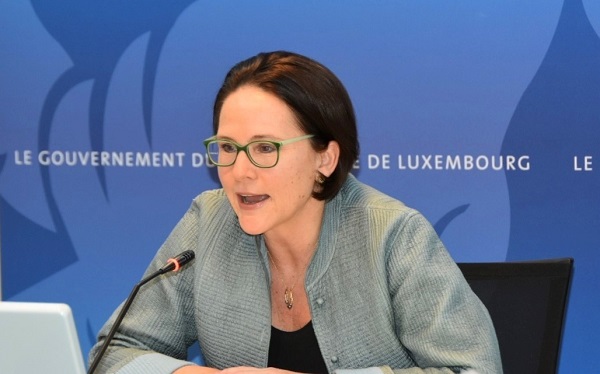 Yuriko Backes, Luxembourg's Minister of Finance;
Credit: MFIN
Yuriko Backes, Luxembourg's Minister of Finance;
Credit: MFIN
On Monday 31 January 2022, during a joint meeting of the finance and budget committee and the budget execution control committee of the Chamber of Deputies (Parliament), Luxembourg's Minister of Finance, Yuriko Backes, provided an update on the State's financial situation as of 31 December 2021.
At the end of December 2021, total State revenues stood at €21.9 billion, which represents an increase of around €3 billion or 16.3% compared to the end of 2020. According to the Ministry of Finance, these positive results are marked by a certain catch-up effect compared to the crisis year 2020. Compared to 2019, total revenue increased by 10.5%, which corresponds to an average growth of around 5.2% per year - which is comparable to the annual progression observed historically.
Total expenditure amounted to €21 billion as of 31 December 2021. In comparison with the previous financial year, expenditure remained more or less stable (down 0.6%), but this result does not yet correspond to the final result of the 2021 budget year due to the "complementary" period which extends until the end of April 2022 and under which additional expenditure can still be incurred from the 2021 budget. Compared to 2019, public expenditure increased by 13.6% and public investment by 26.6%. Public investments made as of 31 December 2021 amount to a total of €2.6 billion.
At the end of 2021, disbursements under the measures put in place in the context of the COVID-19 pandemic amounted to €681 million, which was significantly lower than that of 2020 (€2 billion). According to the Finance Ministry, this decline reflects increasingly less recourse to the various aid schemes and the good performance of the country's economy. State guarantees on bank loans as well as those granted by Luxembourg's export credit agency, the Office du Ducroire (ODL), amounted to a total of €267 million at the end of 2021.
The central government balance (taking into account revenue and expenditure) as of 31 December 2021 stood at +€840 million. According to the Finance Ministry, this surplus remains a momentary picture, due to the complementary period which runs until April 2022; the final balance of the 2021 financial year is expected to be lower than this. The figures that are currently available, however, suggest that the central government should manage to close the 2021 financial year with a balance that is better than the deficit of approximately -€1 billion estimated in autumn 2021 and significantly better than the deficit of - €2.4 billion initially estimated when the 2021 budget was tabled in October 2020. Public debt ratio has also improved markedly, now falling to around 25% of GDP, contrary to the 29.4% expected at the time of the presentation of the 2021 budget.
Finance Minister Yuriko Backes commented: "The figures as of 31 December 2021 confirm the positive evolution of tax revenues observed throughout the year. Given that at the same time expenditure has been largely controlled, the central government should close the year 2021 with a better result than expected. I would like to thank my predecessor Pierre Gramegna for having managed public finances in such a sustainable way, which enables us today to look forward to emerging from the crisis with confidence. I will try to accomplish my mission in the same spirit, in the interest of the country and the citizens. Indeed, if the current figures underline the resilience of the Luxembourg economy, many challenges await us and require a prudent and responsible approach".








